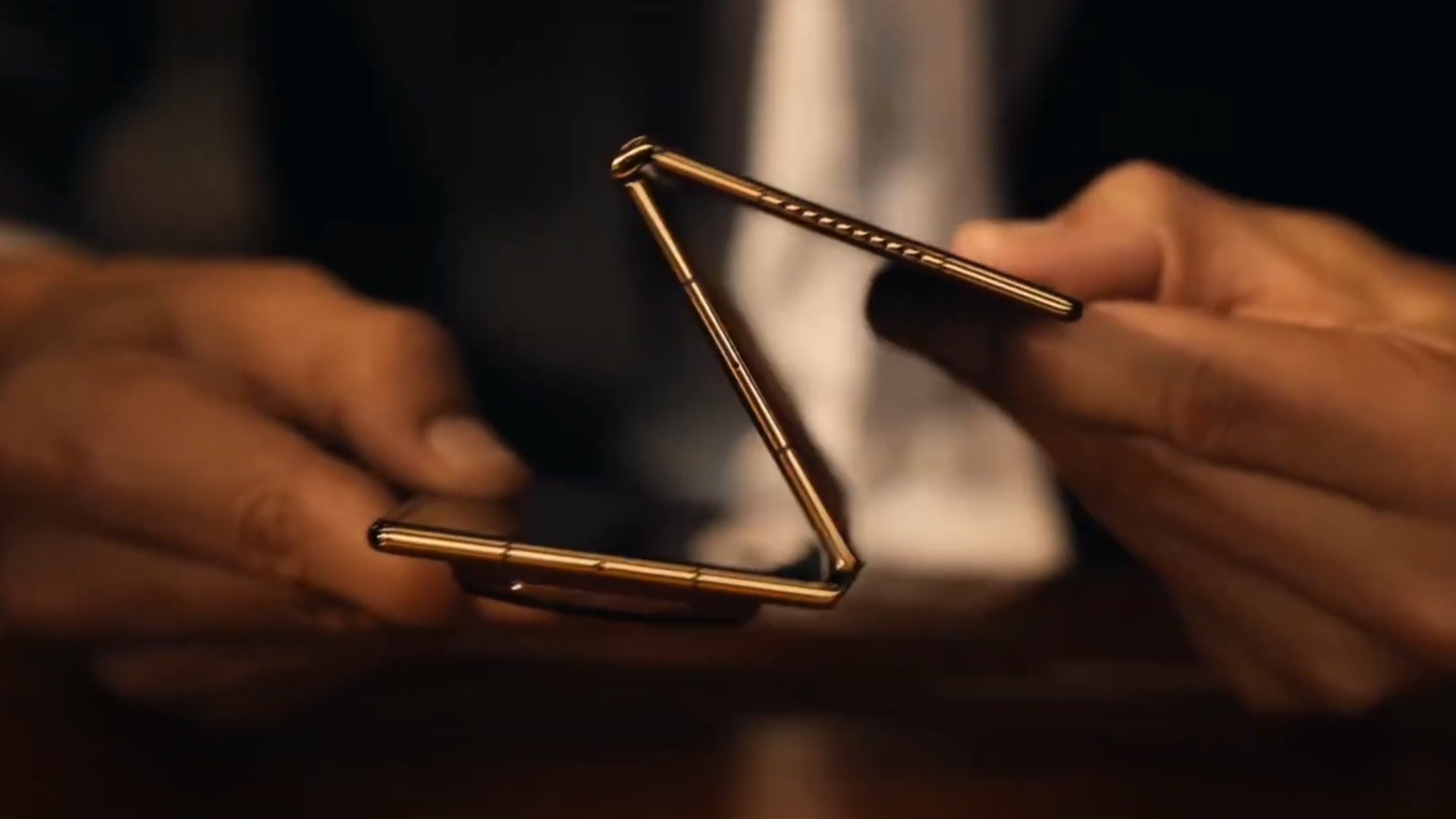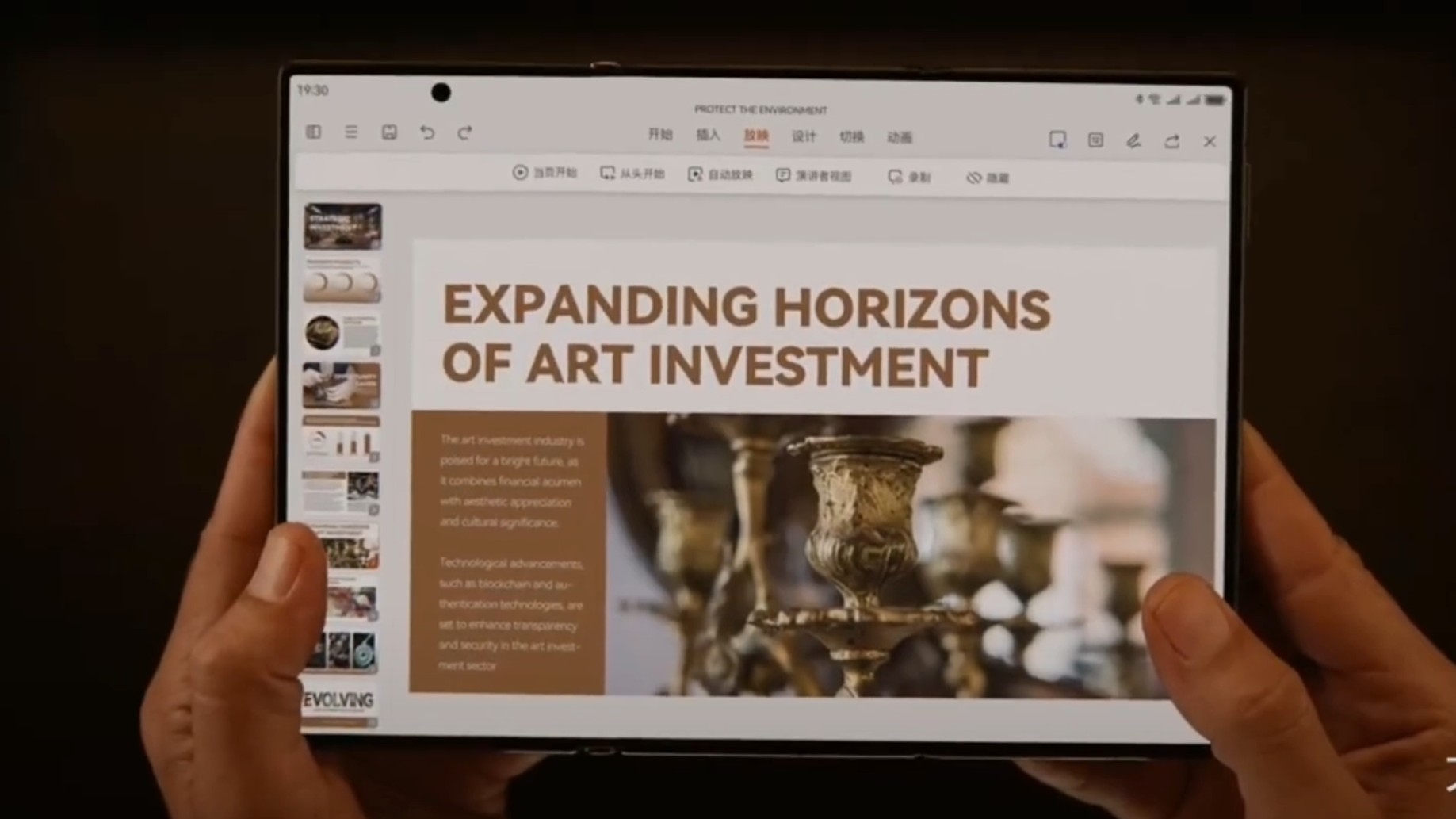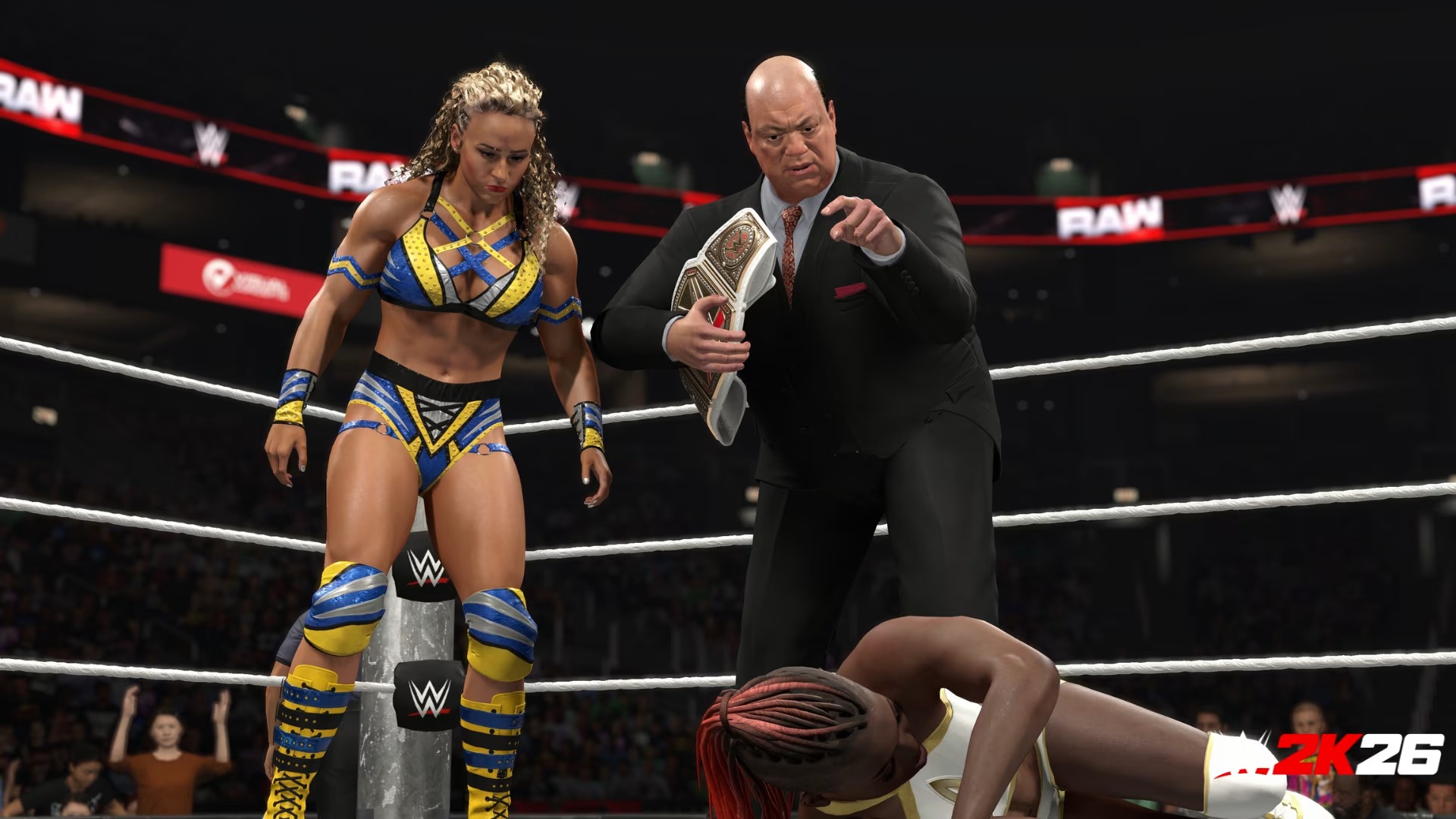Huawei's 10-inch tri-folding phone confirms Satya Nadella was wrong for killing Windows Phone AND Surface Duo
The Huawei Mate XT "tri-fold" packs a 10-inch display into your pocket, and I wish it ran Windows.

All the latest news, reviews, and guides for Windows and Xbox diehards.
You are now subscribed
Your newsletter sign-up was successful
Huawei has just unveiled its long-teased "tri-fold" smartphone. It features two foldable apexes across a 10-inch display that can collapse down to just 6.4 inches, allowing that 10-inch panel to fit into your pocket. When collapsed, it utilizes a Z-shaped fold, meaning the screen bends into three "panels" and enables many different postures and use cases.
Of course, phone mode utilizes the front panel at 6.4 inches, which is what your average smartphone looks like. The second posture has just two panels, measuring around 7.9 inches, and matches your standard foldable phones today. The last posture utilizes all three panels for 10.2 inches of total screen real estate, something never before seen on a phone that can fit in your pocket.
I'm already in love with this form factor, but even if it didn't cost $2800 (yeah, you read that right), the device would only be available in China and with Huawei's custom HarmonyOS. Even if it ran stock Android, I still think there's a better OS out there for a device like this, and that OS is Windows.
10.2 inches is large enough to run Windows comfortably. The Surface Go 4 has a 10.5-inch display, and I love using it as an on-the-go Windows machine. Now, if I could fold the Surface Go into my pocket and use it as a phone, that would be the absolute dream.
Of course, this dream can't exist because Microsoft has killed all avenues to a viable mobile platform. Windows 11 is a desktop OS acceptable for a 10-inch device, but it doesn't scale much smaller than that. Windows 11 on an 8-inch device is tough and basically unusable at 6 inches.
And that doesn't even consider that Microsoft no longer has a mobile app platform. UWP is long dead, and app developers are now being encouraged to develop classic Win32 apps that utilize modern UI frameworks such as WinUI 3 instead.
If we rewind about 8 years, Windows 10 Mobile would have been the perfect platform for a device like this. With a beautiful, native mobile UI and platform paired with Continuum, it would blend beautifully across the three postures found on the Huawei Mate XT. You could have a full Windows desktop when you want it or an easy-to-use, touch-first Windows mobile UI when you don't.
All the latest news, reviews, and guides for Windows and Xbox diehards.
It always seems to be the case, but Microsoft was well ahead of the game with Windows Phone. It was building out a platform that would have been well-positioned for these multi-postured devices. It even had CShell, which was literally designed from the ground up to allow the UI to adapt on the fly depending on screen size and form factor.
The problem with Android foldables currently is that many of the apps that run on them aren't optimized for the larger screen. Android does well in the mobile space, but it's a different ball game when it comes to tablet apps. This drawback is improving, but it's still not where I (and Google) would like it to be.
Had Windows Phone and UWP taken off, we'd be living in a very different world right now, where most Windows apps have a touch-first mobile interface and desktop-class interface that would adapt on the fly. I think foldable phones would have been Windows Phone's saving grace, as it was easily the best prepared for this new category of devices.
Sadly, Satya Nadella pulled the plug on Windows Phone too soon and ended support for the platform just as the first folding phones were announced. Even the Surface Duo, which launched with Android a few years later, was destined to fail under Microsoft's current leadership. That form factor was ripe to develop into something like the Mate XT over time, maybe even running a hybrid Android + Windows combo for the best of both worlds.
New innovations in the mobile and wearable space keep happening, but none of them are applicable to Microsoft because it decided to kill Windows Phone. This decision will hinder the company forever as more technology becomes mobile and wearable-focused.
At this point, I don't think there will ever be a folding device that I don't pick up and think, "Man, I wish I could run Windows on this thing."
Oh well.



